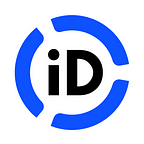What is GlobaliD?
GlobaliD is a digital identity platform that puts you in control of your identity and your data, allowing you to go about your day-to-day business online without sharing your personal information — unless you want to.
With GlobaliD, you collect verifications, which protect your privacy while giving you permission to take important actions online — like applying for a job, renting a room, or sending and receiving funds. Your GlobaliD identity and your verifications areportable, meaning that you can use it with any GlobaliD partner, and lets you control others’ access to your data.
What is a digital identity?
Your digital identity is a digital representation of all the identifiers and behaviors that make up who you are.
This could mean personal information such as your date of birth, your home address, or your government ID number. Or it could mean a secret passcode, a photograph, or even facial biometric data. With your GlobaliD digital identity, you collect verifications of those identifiers, which allows you to develop your reputation and digital trust, providing access to products and services.
What makes my GlobaliD different from social login?
Most digital identity platforms take ownership and control of your digital identity and your data for their own purposes. For instance, social media companies make money from selling your data to unauthorized third parties. Further, common forms of digital identity are limited and siloed, meaning that if you develop a positive reputation on one platform, you aren’t able to reuse that reputation elsewhere.
In contrast, GlobaliD is privacy-first by design, allowing you to take ownership and control of your own digital identity, so that you can use it any way you and anywhere see fit. This means that you can represent and verify yourself online in a trusted way, while retaining ownership and control of your digital identity and your data.
Only you can decide how your data is accessed or used, and who can access and use it. Since you own your GlobaliD digital identity, it is fully portable, allowing you to take the trust and reputation that you develop with you wherever you go.
What is a portable identity?
A portable identity is one that you can take with you along with the trust and reputation you’ve already established, meaning that you can use it to access and to use services anywhere.
Common forms of digital identity today aren’t portable and are instead locked within their respective platforms, so that a trusted reputation that you have worked hard to build — such as on a social media platform cannot be used at , an auctions marketplace, or a home rentals marketplace.
With GlobaliD, your identity is fully portable, meaning that you can take your trusted reputation with you wherever you go. This is analogous to how phone numbers were once fully-owned by network carriers, requiring you to get a new phone number every time you switched, but are now portable so that you can keep the same number even if you switch carriers.
What is self-sovereign identity?
The Sovrin Foundation: Self-sovereign identity (SSI) is a term used to describe the digital movement that recognizes an individual should own and control their identity without the intervening administrative authorities. SSI allows people to interact in the digital world with the same freedom and capacity for trust as they do in the offline world.
What are verifications?
Verifications are credentials you can collect that provide objective proof that your provided information has been verified as true by a specific third-party verification agency.
What are verification providers?
Verification providers are independent, third-party agencies that provide verifications for your GlobaliD digital identity. You can collect verifications from providers of your choosing to develop your reputation and digital trust. New verification providers are regularly added to the GlobaliD ecosystem.
Examples of verification providers you can access today:
- Email (Ekata, Berbix, Mandrill, and others)
- Age (AgeChecker.Net)
- Phone number (Ekata, Berbix, Civic, and others)
- Address verification (Ekata, Onfido, Yodlee, and others)
- Liveness (Google, Verifi.me)
- Government ID (Onfido, Berbix, Veriff, Civic, and others)
- Social media account (Facebook, Twitter, LinkedIn, Google)
- Bank account (Yodlee and others)
- Cryptocurrency wallets (Zabo)
- Accredited investor status (InvestReady)
- Sanctions watchlists screening (Uphold)
- College degree (National Student Clearinghouse)
- Peer-to-peer vouches
- Among many others!
What is a GlobaliD Name?
Your GlobaliD Name is a unique handle that represents your digital identity. Any verifications you collect are tied to your GlobaliD Name, allowing you to build a trusted reputation for this identity. You can claim any GlobaliD Name of your choosing as long as it’s available — it doesn’t have to be your real name. You can also claim more than one GlobaliD Name.
How does GlobaliD protect my privacy and my data?
GlobaliD protects your privacy and data through our verifications system and industry-leading security practices. GlobaliD verifications are statements that describe something about you that an independent, third-party verification agency has verified to be true.
Using public key cryptography, your private data is encrypted and stored in the GlobaliD Vault and can only be accessed or shared with your explicit consent. This means that your data isn’t being redundantly stored by each new service provider you choose, is only accessed on a need-to-know basis, and that these verifications of yours are portable since they can be used to verify your identity with other GlobaliD partners.
In the case of a partner data breach, your data is safe since they were never storing it themselves. That service provider can then request to delete your private data from the GlobaliD Vault. Nobody — including GlobaliD — can decrypt your personal data without your express permission.
